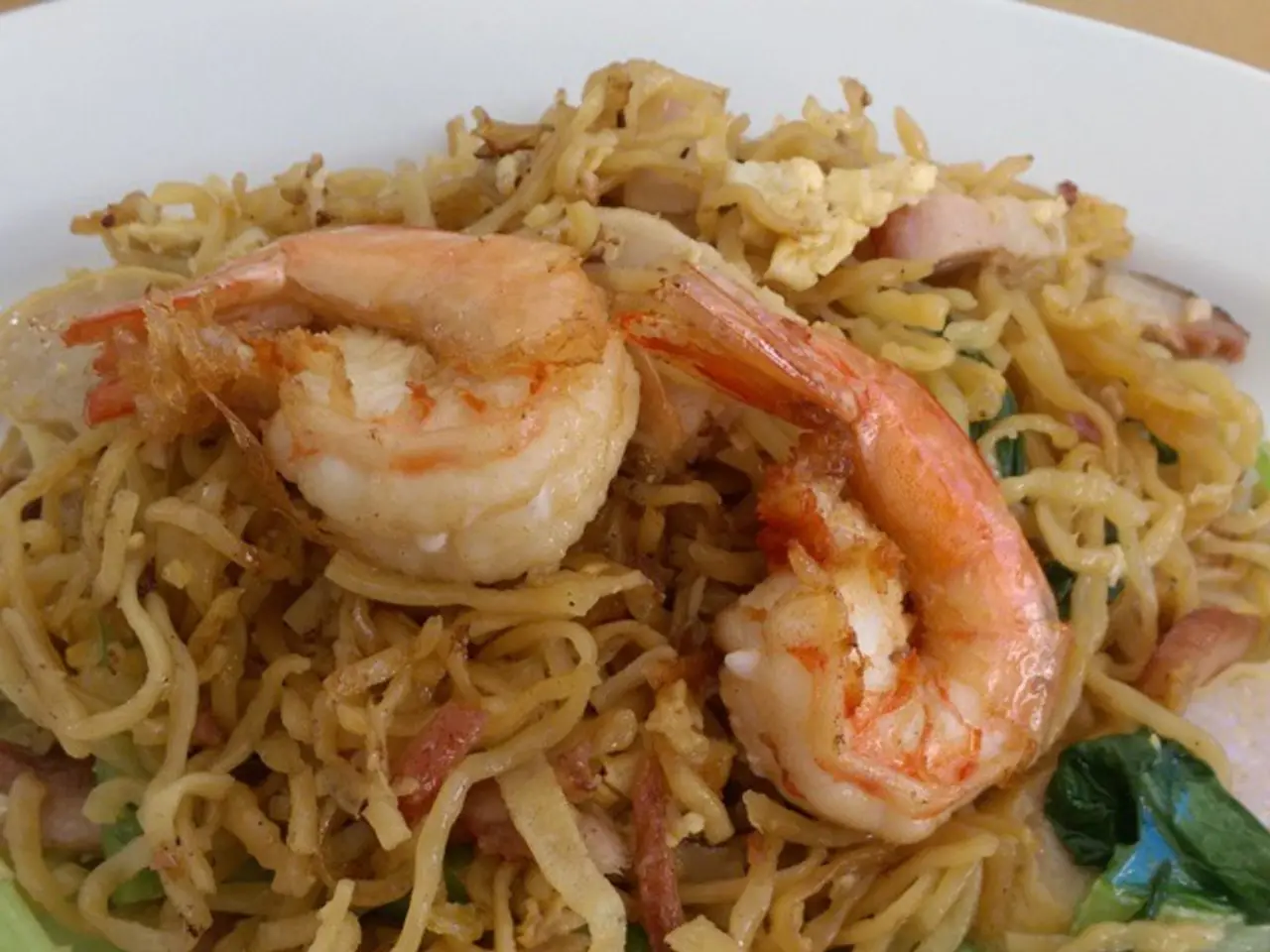Experiencing Migraines After Meals? Here's What Might Be Causing It
Migraines can often be influenced by various triggers, including certain foods and their components. Several complex compounds in food have been linked to the onset of migraine attacks, although the exact mechanisms are not yet fully understood.
Known Complex Compounds and Foods
Tyramine
Found in: Aged cheese, chocolate, fermented products (such as soy sauce and sauerkraut), smoked or cured meats and fish Suspected Mechanism: Tyramine can stimulate the release of noradrenaline, which can lead to vessel constriction and subsequent dilation – both known mechanisms in migraines.
Histamine
Found in: Aged cheese, alcoholic beverages (particularly red wine), smoked meats and fish, spinach, aubergines, tomatoes Suspected Mechanism: Histamine can directly affect blood vessels and cause dilation, which can potentially trigger a migraine attack.
Nitrate/Nitrite
Found in: Processed meats (such as sausages and bacon), cured meats (e.g. salami, ham), prepared meals Suspected Mechanism: These substances are converted into nitric oxide, which can cause blood vessels to dilate and potentially trigger a migraine attack.
Phenylethylamine
Found in: Chocolate, certain cheeses, citrus fruits Suspected Mechanism: Phenylethylamine can influence the release of serotonin, which may trigger a migraine in some individuals.
Aspartame
Found in: Many light and diet products, sugar-free gum, soft drinks Suspected Mechanism: The exact mechanism is unclear, but some people may react sensitively to this sweetener.
Glutamate (MSG)
Found in: Prepared meals, Asian dishes, seasonings, chips Suspected Mechanism: Glutamate can increase neuronal excitability and is suspected as a trigger in sensitive individuals.
Tannins
Found in: Red wine, tea Suspected Mechanism: Tannins can affect the absorption of the amino acid tyrosine, leading to the release of neurotransmitters.
Different Sensitivities
Important: Each migraine sufferer reacts individually to different triggers. Not all substances mentioned above will cause a migraine in every individual. Some people may be extremely sensitive to certain foods, while others may not react at all.
Recommendations
It is recommended to keep a migraine diary, in which food intake and migraine attacks are documented. This can help identify individual triggers more easily.
Over-the-Counter Medication and Alternative Treatments
Over-the-counter medications like ibuprofen, naproxen, aspirin, acetaminophen, and Excedrin are common first-line treatments for migraine attacks.
Alternative treatments, such as acupuncture, can help reduce the frequency of migraine attacks, particularly for individuals who experience 6 days of migraine pain per month.
Commonly Reported Food Triggers
Alcohol and chocolate are the most commonly reported food triggers for migraine attacks, with alcohol accounting for 33% and chocolate for 22%.
Other Potential Triggers
A cold compress can help reduce inflammation and pain caused by migraine when applied to the forehead, temples, or the back of the neck.
Postprandial hypoglycemia, or low blood sugar levels after eating, can be linked to migraine attacks.
Food intolerances, which don't create an immune reaction like allergies, may also cause migraine attacks.
Eating cold foods or drinking cold beverages quickly can cause a headache known as an ice-cream headache or brain freeze, which can last up to an hour.
Temporomandibular disorder (TMJ) can cause headaches or migraine episodes.
Food allergies can cause migraine attacks, as the body views the food as an invader and kicks the immune system into gear.
A headache after eating could be caused by a bad reaction to certain compounds in food or a food allergy.
Caffeine Withdrawal
Caffeine withdrawal can lead to a migraine attack in individuals who regularly consume caffeine.







